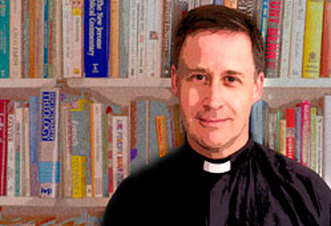Hugh Valentine
|
Date ordained
Deacon 1989; Priest 1990 Sphere of work Local Government until c2005; third sector foundation concerned with poverty and education since. Why did you become an SSM/MSE/WP? My formative background had been amongst the Quakers, from the age of 17 to about 29. It was there that I became explicitly Christian. I was greatly influenced by many Quaker 'testimonies' (plain truthful speech, not swearing oaths, and the call to all men and women to share in ministry). Of course, the Friends reject any professional ordained priesthood. So when that 'calling' came my way, I was more than a little thrown by it. Anyhow, I was working as a social worker in Bermondsey, mainly in family cases and child protection. I could not see that it was right to remove my perceived call to be ordained from the context in which it had been given me. I researched the options, came across the history of the worker-priests, and explained to the diocesan Higher Powers that I believed the call was to continue in my work. What's best about what you do? In 25+ years in social services it was mainly colleagues and the belief that though unglamorous and often stressful, the work was valuable. I felt that strongly as a practitioner, though as a manager and later as director/head of service that primary focus became blurred by target-chasing, budget-balancing and the less attractive aspects of local government politics. In my present role, as director of an endowed foundation dating from the 1600s and concerned with education as a means of helping children and adults from low-income households escape the cyclic disadvantage, the best aspect is the freedom. The trustees are interested and supportive; the Foundation has historic resources and is free to pursue its aims without interference from politicians, shareholders or regulators. Its brilliant. Being a priest in a secular setting is challenging. I'd need more space than I have here to begin to explain it (as I have done, elsewhere). Overall, I'd say it has been and is a fantastic and marvellous calling. What's the most challenging? Any MSE/WP will say something like 'balancing it all'. I know parish clergy often speak of feeling alone and unsupported, and I think that takes a sharper focus for many an MSE. Frankly, the institution of the church is not interested in this sphere of ministry. There are exceptions, but institutionally, it is blind to this 'fresh expression' of priestly work. If the church asked, what would you say are the three most important things you have learnt from your work-focused ministry?
My impression is that the Church - institutionally - is unlikely to ask. It would require a major change in attitudes. But if it did, I might say -
has, to date, been so lack lustre? I suspect this arises from patterns of selection - who has been chosen for these roles since the development became possible. Although some working class candidates made it, those from respectable professions and who are established in them seem often to have featured. The C of E likes the middle class professionals and "top" people. And someone has to! But what I mean is that if you were wanting to create a body of clergy engaged in a more serious way with the challenges and opportunities raised by the faith in the setting of myriad, ordinary, workplaces, you'd have chosen differently. So we have many unpaid clergy who take seriously their parish pastoral and sacramental duties, but then, as it were, go off to work, not really taking their calling with them. That has shaped the experiment - rather wrecked it in fact. It has brought in extra parochial hands at virtually no cost, but has led to missed opportunities. I recently had a helpful email exchange with a bishop, though in passing he commented to the effect that the problem with MSE/WPs is that they always complain how unsupported they are! Well, we are! And the evidence seems fairly strong. There is no reason why we can't all move beyond these positions, but it really does require bishops, chapters, diocesan systems to draw us in rather more than they do. What is it that SSM/MSE/WPs can contribute to the mission of the church today? Different perspectives. There are so many brilliant parish clergy around but identifying with a single institution, profession or model will, in time, blur the perceptions of even the ablest and most alert. What do you think SSM/MSE/WPs need to receive from the church in order to be effective in their unique ministry? Greater interest. Better support. More of a voice. Would you do it all again? In a heartbeat. |

